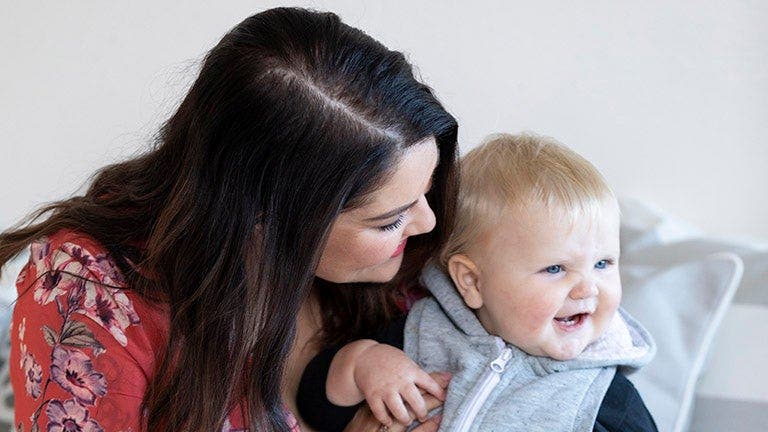Pregnancy and excess weight: what you need to know


From finding out that you're pregnant to holding your little one in your arms for the first time, having a baby is one of the most amazing experiences.
Building healthy habits and losing weight can support a healthy pregnancy and the health of your baby for the longer term.
Pregnancy and weight
Research shows that coming into pregnancy with excess weight increases the health risks for both mum and baby. For mum, there is an increased risk of miscarriage, hypertension, gestational diabetes, caesarean section and more difficulties with delivery.
For baby, there is an increased risk of stillbirth, being born premature, having higher birth weight and neural tube defects.1 There is also a growing area of research suggesting that a high birth weight is linked to a risk of obesity later in life.2
Losing weight when you are planning for a baby is an effective way to help counteract these risks. And the good news is, a relatively modest amount of weight loss can bring significant health benefits.
Studies suggest that even modest decreases (like a 5-10% weight loss from where you are now) can significantly improve health by lowering the risk for high blood pressure, type 2 diabetes, heart disease and obesity-related cancers.3,4,5
Shifting your habits to healthier choices and losing weight may have a positive impact on pregnancy and your lifestyle beyond.
New motherhood and weight loss
Once you've recovered from giving birth and experienced your first few weeks or months of motherhood, you may start thinking about making healthier choices and losing weight.
For many women, losing weight post-pregnancy is easier said than done. You have a little one to look after now!
While it won't happen overnight, successful weight loss after a pregnancy is absolutely possible. As you might expect, the keys are eating healthily and making time for movement. You can also join a flexible weight-loss programme like WW, which fits around your life, not the other way around.
One study found that new mums that participated in a structured programme of weekly meetings that focused on diet and nutrition (like our WW Workshops) lost more weight than those who tried to lose weight on their own.6
It's important to get approval from your GP before starting any weight loss programme. To lose weight at a safe and healthy rate, up to 1lb a week is recommended if nursing and up to 2lb a week if you're not breastfeeding.
If you'd like to check your BMI, check out our BMI calculator here.
1. Scialli AR. Teratology public affairs committee position paper: Maternal obesity and pregnancy . Birth Defects Res A Clin Mol Teratol. 2006 Feb;76(2):73-77.
2. Oken E, Gillman MW. "Fetal origins of obesity." Obes Res. 2003 Apr;11(4):496-506.
3. Blackburn G. Effect of degree of weight loss on health benefits. Obes Res.1995;3(2):211s-216s.
4. Jensen MD, et al. 2013 AHA/ACC/TOS guideline for the management of overweight and obesity in adults: a report of the American College of Cardiology/American Heart Association Task Force on Practice Guidelines and The Obesity Society. Circulation.
5. Wolin KY, Carson K, Coldotz GA.. Obesity and Cancer. Oncologist. 2010;15:556-565.
6. O'Toole ML, Sawicki MA, Artal R. Structured and physical activity prevents postpartum weight retention. J Women's Health (Larchmet). 2003 Dec:12(10):991-8.
